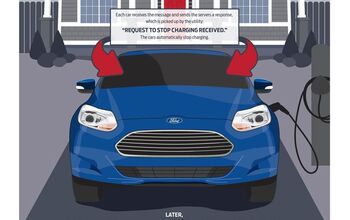Utilities, Automakers Collaborate On Smart PHEV Charging Platform
A combination of one research institute, eight automakers and 15 utilities are working together to create a smart grid charging platform for PHEVs.
Autoblog Green reports General Motors, BMW, Honda, Fiat Chrysler Automobiles, Ford, Mercedes-Benz, Mitsubishi and Toyota, as well as utilities like Con Edison, Manitoba Hydro and the TVA, are working with the Electric Power Research Institute to develop a demand charging platform where the PHEV and the utility exchange information that would reduce the former’s charging during peak hours, then boost it back up during off-peak.
In turn, such a system would allow for increased service reliability for all customers “by helping to mitigate the impact of strain on the grid during peak periods and could contribute to curbing greenhouse gas emissions.” Further, utilities would better be able to manage usage without needing to upgrade their infrastructure, with the savings passed on to their customer base.
As for when this project would get off the ground, no timeline was given as of this time.
Seattle-based writer, blogger, and photographer for many a publication. Born in Louisville. Raised in Kansas. Where I lay my head is home.
More by Cameron Aubernon


































Comments
Join the conversation
While this all sounds like a great idea, I have a serious issue with it: A PHEV typically needs charging during the day IF it's a relatively short-ranged vehicle AND most of its charge has already been used just to get to that location. Any EV with a 40-50 mile range going into the city as a commuter or for shopping is going to want charging while there if at all possible and that's the time of day these electric providers are saying they'll reduce charging capacity. Now, that may not be much of an issue right now, but every day sees hundreds more EVs hit the road in one way or another, irrespective of any one brand name. In other words, more charging capacity needs to be installed, not less. In other words, all this will do is drive people towards cars with longer range capabilities that won't need to be charged during a typical day's commute or shopping.
Sounds reasonable to me. As a PHEV owner, I do all my charging at off peak times. Unless you live somewhere there is a surplus of solar or wind generated electricity, charging during the middle of the day is not all that good of an idea.